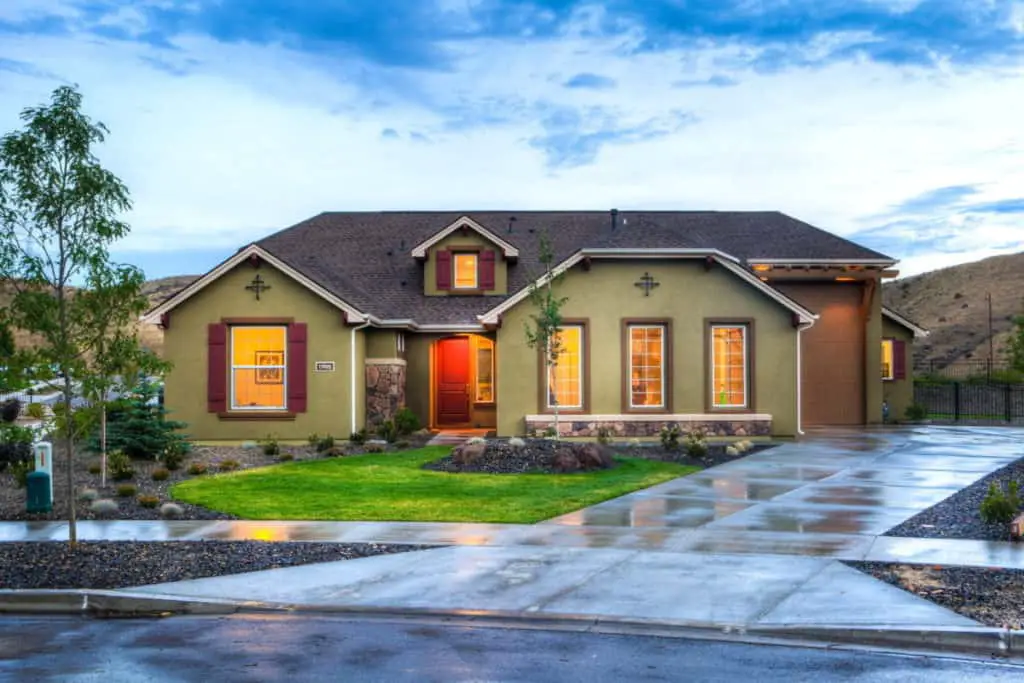
The primary purpose of any roof is to protect the people and the objects inside the structure. One would think that since residential and commercial roofs are constructed to achieve the same purpose, that there is not much difference between them. After all, a roof is a roof. Or is it?
Well, not precisely, while commercial and residential roofs do have some similarities, they have significant differences as well. The type of property you own will determine the type of roof you should get. Professional roofers understand that both these roofs are not created equally, allowing them to find a high-quality roofing system for each structure.
So, what is the difference between commercial and residential roofing? Commercial roofs are much larger and tend to have a low slope or a flat roof which requires special flat roof materials such as TPO. Contrary, residential roofs are usually smaller and have a pitch that requires different roofing materials like asphalt shingles.
Whether you are considering replacing the roof of your property or you are interested in roofing as a profession, knowing the differences between commercial and residential roofing will help you make the best choice for your needs. As mentioned before, there are some major differences between residential and commercial roofing, so it is best to know what you are getting yourself into before making rash decisions.
When it comes to residential roofing, you will find that most homes have steep-sloped roofs. This kind of design is relatively simple to install and more convenient to maintain because they help make it easier to scan for damages. Additionally, the sloped roof helps to quickly move water and snow off your home. In most cases, residential roofs are also much cheaper to install because they are smaller in size, the materials cost less, and there is no need for specialized tools and equipment during the installation process.
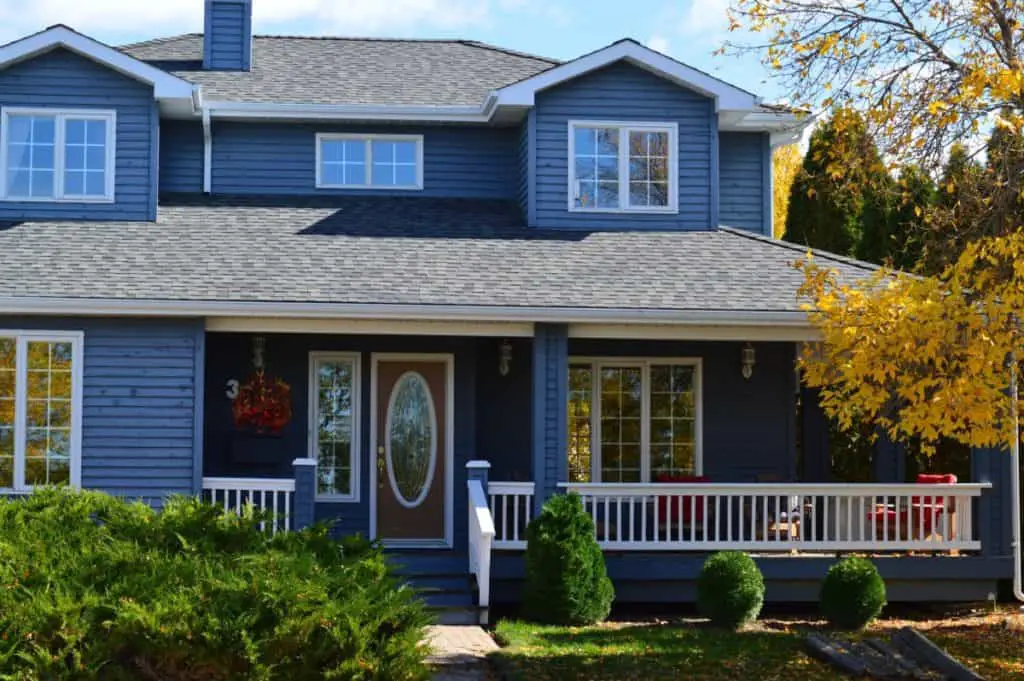
Commercial Roofs
You will mostly find buildings with flat or low-slope roofs in the commercial, industrial, and institutional industries. Due to the flat surface of commercial roofs, they can conveniently accommodate gardens or solar panels. Some businesses might even keep mechanical equipment on their commercial roof, and therefore, special consideration is required for their weight capacity.
A roof must be constructed with durable materials to ensure low maintenance and maximum lifespan. In most cases, the size, exposure to natural elements, and the design will influence the type of materials used.
Durable roofing materials used for commercial and residential roofs include metal roofing, wood shakes, built-up roof, or shingles made from asphalt, slate, tile, ceramic, or solar. You can click here to read more about these materials. Even though certain roofing materials are more commonly used for specific roof construction, it is possible to have either of these materials on a residential or commercial roof. The best way you will know which material is best for your property is to discuss your roofing project with a professional roofer.
I recommend finding a professional roofing contractor through our trusted partner Home Advisor because they allow you to get up to 4 quotes for free. This allows you to compare and choose the best roofing professional for your needs. Check them out by clicking this link.
Maintenance and inspection will also differ when it comes to residential and commercial roofing in terms of how they are inspected and the number of times and how often maintenance checks are done. Nonetheless, both these roofs require attention, and the property owner should always make sure that gutters and downspouts are clean. Since any roof can suffer from damage after a storm, a roof inspection after harsh weather conditions is always a smart move no matter what roof you have.

A roof inspection can be conducted visually by a homeowner from the ground since it is not recommended to walk on a residential roof if you are not a roofing expert as this can cause extra damage to the roof. Residential roofs should be inspected by a professional roofer at least twice a year, after any major wind or hailstorms, when the homeowner notices any visible damage on the roof, or leaks inside the home are noticed. Ideally, you will want to find damages before a leak gets noticed that way the problem is a minor fix. In some cases, if damages are found, patches can be applied for minor damages. These too will vary greatly by the type of roof material used.
Opposite of residential roofs, commercial building owners can easily do a decent roof inspection themselves since they can walk on the roof to check for any damages, critters, or debris. Inspection and preventive maintenance are required more regularly on a commercial roof compared to a residential roof. Leaks on commercial roofs may be a bit more difficult to spot without the trained eye. Roof membrane leaks are caused by a puncture through the roof membrane or by a broken seal or insufficiently welded seam.
It will be in your best interest to hire a roofer who specializes in the type of roof suited for your property. Some roofing contractors might just specialize in residential roofing, while others might have residential and commercial roofing experience. Either way, whichever roofer you choose, make sure they have obtained the needed licenses and insurances and are experts in the field.
You may also be interested in this article 32 Things You Must Check to Ensure a Quality Roof Replacement
What types of roofing materials are primarily used for residential roofing?
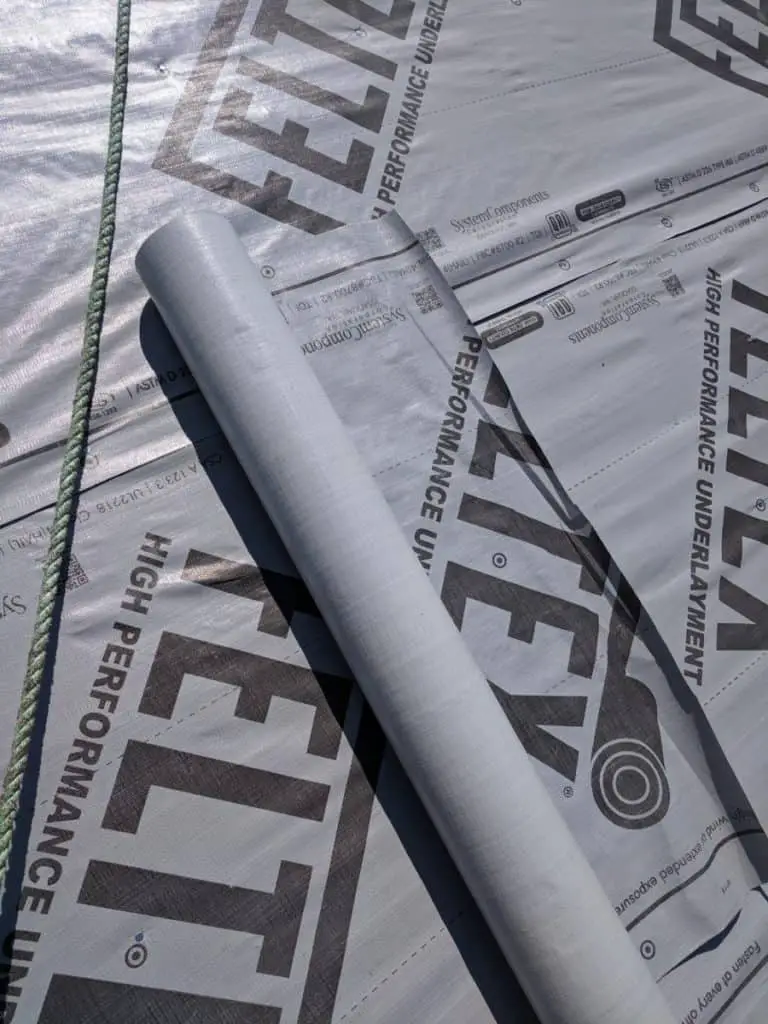
Even though residential roofs can consist of just about any roofing material on the market, most homeowners opt for asphalt, slate, tile, or cedar shake shingles. Solar shingles are also becoming more popular as technology advances. Asphalt shingles are the most popular in the United States because they are economical and easy to install. However, as times have changed, some people choose to move away from conventional designs and go with metal roofing instead.
What types of materials are primarily used for commercial roofing?
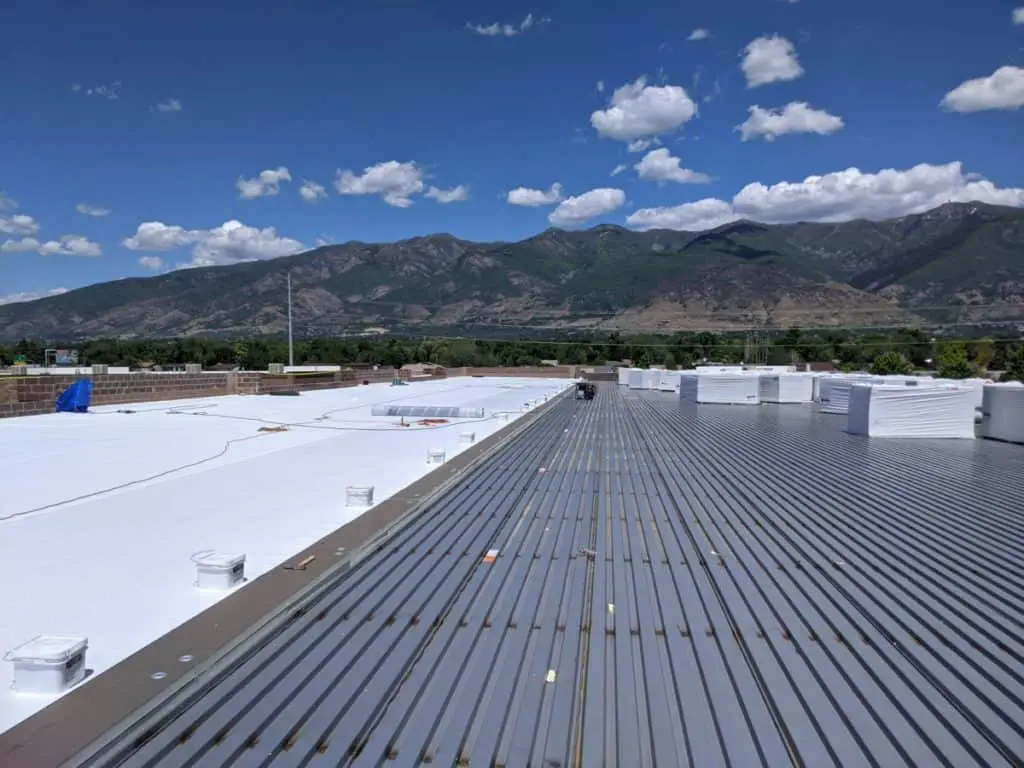
Commercial roofs can range from old-style built-up roofs, modified single-ply, Spray-On, EPDM, PVC, to TPO. However, the best and most commonly used materials for commercial roofing are PVC, TPO, EPDM, and metal retrofit roofing. Because commercial roofs are more complicated to install due to their size and how they are installed, it is best to stick to the materials proven to work and not get too creative when it comes to design.
Cost differences between commercial and residential roofing.
The price of a roof for a commercial building will be at the higher end compared to a residential home. The main reason for this is due to the greater area of a commercial roof. However, specific tools like heat welders, protection equipment like respirators, and other components required to complete the project may also increase the price of a commercial roof installation. You can also click here to see some estimated costs of materials per square (1 square = 100 square feet).
Differences in Technical Training:
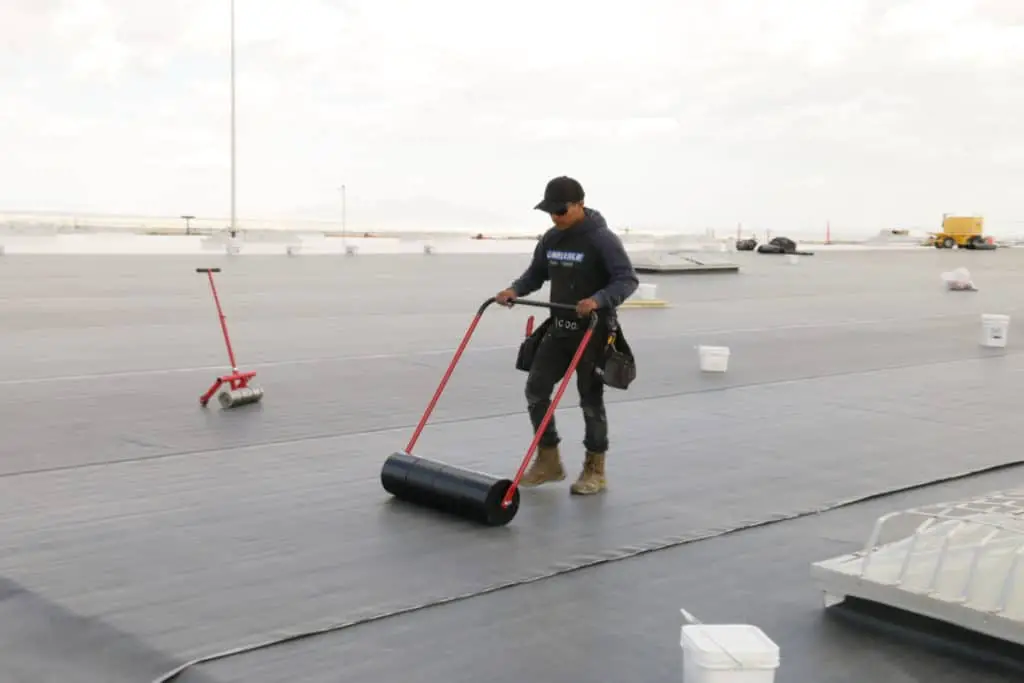
Whether you are interested in residential or commercial roofing, you do not need any formal education. However, some classes are offered for specific commercial roofing products like TPO. These classes are sometimes offered by the manufacturer. These classes teach you how to heat weld seals, install insulation, and weld around pipes.
While some employees might ask for qualifications such as prior training or experience in the roofing industry, this is not always needed. Apprenticeship programs are a great way to start if you are a newbie, as it will teach you the skills needed for the job. Training can be done through a contractor or experienced roofer.
Keep in mind that there are some major differences between commercial and residential roofing. Therefore, the training will be different in each field. One can either train with a company specializing in one type of roof installation or choose a company that does both commercial and residential roofs.
To become a roofer, one will also have to meet the job’s physical demands as it will require lifting heavy materials, climbing ladders, working outdoors in all weather conditions, etc.
Click Here to Read my Article Is Roofing Easy to Learn?
Salary Difference for Roofers in Commercial vs Residential

A residential roofers’ average salary in the United States is $3,132 per month, while a commercial roofer will get paid $3,346 per month. Keep in mind the rate per hour will also vary, depending on the state you are working in. The states where roofers get paid the most are Minnesota, Hawaii, Massachusetts, Connecticut, Missouri, California, and Washington.
The salary will also be based on the level of experience the roofer has. For instance, a laborer will get paid the least, followed by the installer, and then the roofer. The foreman of the roofing project will earn the highest salary. Anyone interested in becoming a roofer can expect to get between $24,000 to $36,000 yearly, depending on their work position.
Related Questions:
Is roofing a good trade? For the right person, roofing can be a great career! If you want to be successful as a roofer, you will have to be strong and have a great attitude. Since roofing is a team sport, bad attitudes can have a negative impact on the team. If you are organized, have a desire to perform at high levels, and have great physical skills, then roofing can be an excellent trade for you.
What is the best type of roof to get? The best type of roof for your home or business will depend on your needs. Things to consider are the style you desire, your budget, and the quality of the materials. Roofing materials have come a long way, and the durability of most materials has improved. Some might argue that asphalt shingles are the best choice, while others might prefer a metal roof. Your needs will determine the best roof for your home at the end of the day, so it is best to discuss your choices with a professional roofer.
Is roofing a tough job? Roofing is definitely not for the faint of heart. In fact, some surveys have revealed that roofing is one of the most challenging jobs there is. This is because it demands a lot of physical strength, and it can be dangerous at times. Nevertheless, there are those who find joy in being a roofer and cannot imagine themselves giving up the view from on top. I personally enjoy the feeling I get at the end of the day of actually having accomplished something and seeing the results immediately after accomplishing it.
